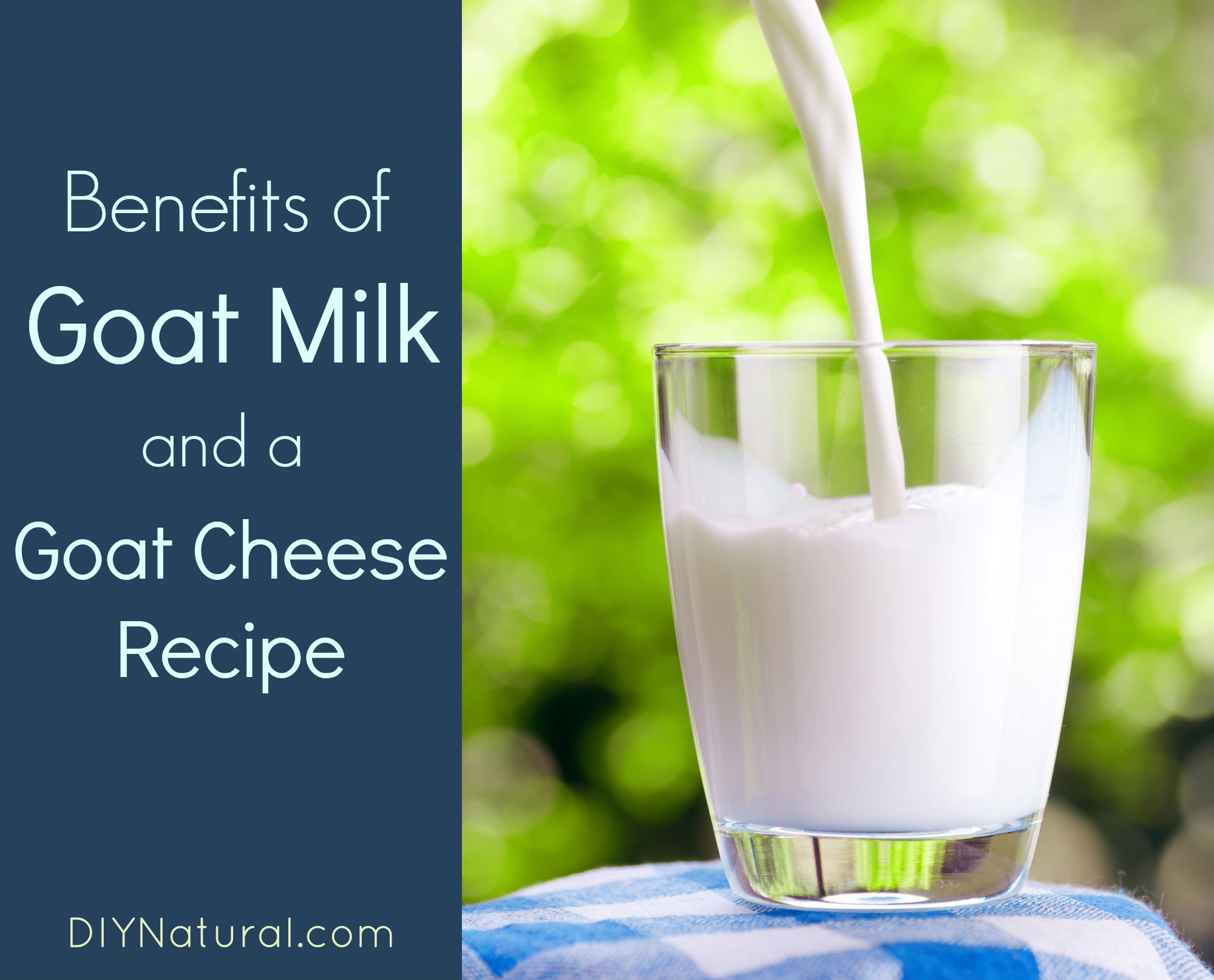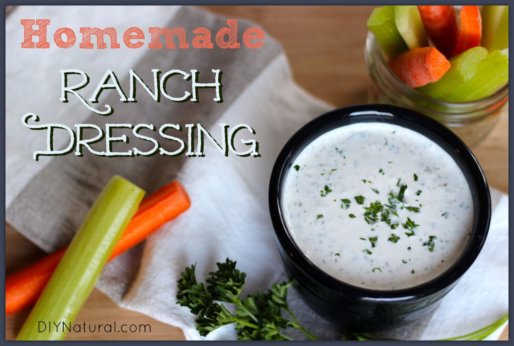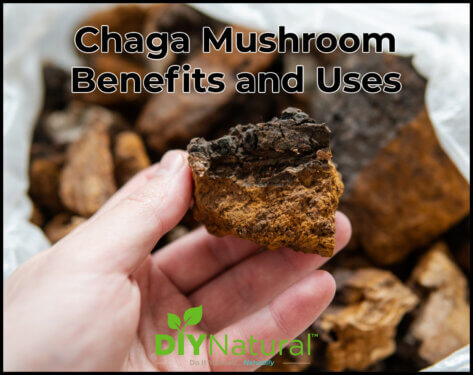Recently I was entrusted to care for a neighbor’s goats, along with his chickens, dogs, cats and horse. Now, I love all animals, but the goats got me right from the start.
They are so friendly and trusting, even when a stranger is milking them. And being that I’ve only milked cows in the past, it has been an adventure!
My neighbor said that I could take the eggs and milk and use them if I wanted to. Did I! I’ve always loved goat’s milk and to get it fresh has been a real treat. What I didn’t know was how good it is for you, so I studied up, and below are some of the awesome benefits I discovered.
Benefits of Goat’s Milk
- Goats are smaller and easier to handle than cows. This can be a huge benefit if you’re like me and have a tough time trying to get an animal to go where you want.
- Goats are less prone to milk related problems such as mastitis.
- Goat’s milk has more protein, Vitamin A and potassium than cow’s milk.
- Goat’s milk contains a bit of Vitamin C.
- Goat’s milk is easier to digest than cow’s milk. For many years babies were put on goat’s milk diets when they had problems digesting cow’s milk. Now soy is recommended by doctors more often than goat’s milk, but with the possibility of GMOs in soybeans, goat’s milk is becoming a good choice again.
- Goat’s milk is versatile. You can drink it straight, use it in cooking, make cheese (see the recipe below), ice cream or even soap or lotion. Some methods, such as soap making, require the milk be frozen first, so be sure to read your instructions well.
- The calcium in goat’s milk is easier for the body to use.
- Raw goat’s milk has even more benefits. (Watch a video about its benefits here.)
- Goat’s milk can be flavored differently from different breeds of goats, location, feed and more. As you find the flavor nuances, you can choose the milk for your recipes. No matter what the type of goat, all are easy to use.
- Goat’s milk is naturally homogenized, meaning that it doesn’t separate as much as cow’s milk will. This makes it great for higher fat recipes like cheese and ice cream. Goat’s milk also has a bit less lactose than cow’s milk
Goat’s Milk Cheese
Here’s an easy recipe for goat’s milk cheese.
Ingredients
- about 2 quarts of goat’s milk
- ¼ cup freshly-squeezed lemon juice
- a few pinches of sea salt (find real sea salt here)
- herbs, garlic or another flavoring of your choice
Equipment Needed
Directions
Pour the goat’s milk into a medium sauce pan. Heat slowly to bring the temperature to 180°. Remove from heat and stir in lemon juice. Let sit about 30 seconds, and it will start to curdle. There will not be big pieces, but a slight curdling. Line a colander with a few layers of clean muslin. (Some books recommend cheesecloth, but the weave is too loose for a soft cheese. I use muslin from the fabric store that has been washed and sanitized.) Place the colander over a large bowl to catch the whey. Ladle the milk mixture into the muslin. Tie up the corners and attach to a spoon. Hang the spoon over the edge of the bowl (easier than balancing on top!). Allow to drip for about an hour, maybe an hour and a half. (Don’t toss your whey! Read about several uses for it here.)
When it is completely done dripping, take the cheese out of the muslin and place it in a bowl. It will be soft like ricotta cheese (because it essentially is). Add the salt and whatever other flavorings you may like. I use fresh thyme chopped with a bit of garlic, or sometimes fresh basil with lemon zest. You can also use dried herbs. The cheese will last a bit longer that 3-4 days, maybe a week. (If it lasts that long without being eaten!) And for a sweet cheese, I add a bit of honey and some chopped fruit like peaches or raspberries. My neighbor likes smoked salt on his and I’d have to say that’s good too.
If you can’t get fresh goat’s milk where you live, there are many brands that you can get in the refrigerated section of the grocery store. If nothing else, try your local natural food store.
*******





Is goat milk good for yogurt? Do you have a recipe? Thank you.
It makes amazing yogurt. You can use goat milk in place of cow milk. You don’t need special recipes for it. 🙂
I would like to caution people about thinking goats are easy. They are not little cows and have very different health needs. Most vets are not trained to care for goats so you need to do a lot of research and find a seasoned mentor close to you to help you.
Do lots and lots of reading before you get a goat. Be prepared before you get a goat. So many people get goats and are not prepared and end up with sick or dead goats.
I don’t know why you’d have to freeze goat milk before making soap. I never saw a recipe that required it, and I’ve made a LOT of goat milk soap without freezing the milk first. In fact, I’d milk the goats, strain it through the milk filter into my big kettle, and immediately start the soap-making process. The only real requirement, as I recall now, 12 years later, was that the milk be COLD because you’d be combining it with lye, which causes a chemical reaction that creates great heat. I’d set the kettle in a sink of ice-water, not freeze it.
LuAnn, goats are indeed a lot easier and less expensive than cows, especially to feed, house, pasture, medicate, breed (you can keep a buck for a LOT less than a bull, and with a lot less danger!), and the effort required to remove one from your FOOT is a WHOLE lot less!
I helped birth probably 95% of my baby goats (saving lives when they’d come in wrong positions), left them with mother 2-3 days, long enough to get the colostrum, then removed mother back out to pasture and the kids to a warm pen under heat-lamps in the barn, and bottle-fed them until they were switched to hay and grain. That imprinted them on ME as “Mama,” and whenever they saw me afterward, they would run TO me, not away, as many a mother-raised kid would do. It requires more effort to feed them that way, but the pay-off in gentle, friendly, approachable, easily-handled goats is worth a fortune.
I also made sure NOBODY messed with my Alpine and Boer bucks, and they were just as gentle as the does. I could go out when two of them were butting heads for dominance during the rut (breeding season), get hold of their collars (all the goats wore collars for easy handling), and walk one on either side of me, with no problem. The only buck I ever had ANY trouble with was a Nubian I’d borrowed from a man who (unknown to me) had abused him, which tried to kill me and my husband on separate occasions. Thankfully, that buck was dehorned, or he could have done some real harm. I was never so glad to see an animal go down the road in my life!
Dehorning goats takes away their only means of defense, but it also prevents them from getting their heads stuck in fences, and perhaps poking out someone’s eye, or causing injuries when they fight one another. Most fights aren’t that serious, but accidents can happen. Horns can get ripped off or broken, too, which causes lots of bleeding and looks terribly scary. Keep a container of blood-stop or powdered alum on hand for stopping bleeding (for man AND beast!)
Most people think goats eat garbage and weeds, but they don’t; they are VERY picky eaters. They prefer grain (especially sweet-feed), dog/cat kibble, rose bushes and any other flowers you want to grow, your garden, your fruit trees, hedges, etc. AND choice alfalfa and grass hay, or clean grass in the pasture – they WILL NOT eat what’s been urinated or defecated on, or moldy hay or grain. Goats are browsers, standing up on their hind legs to reach low tree limbs and tender bark, and are used to clear brush from fields and forests.
Goats love to stand on wire fences, breaking the welds or getting tangled in them, or poking their heads through the holes. Barb-wire will snag and tear udders – don’t use it if at all possible. Use woven field-fence for strength, not the cheap ‘utility’ fencing – it’s useless for goats! They’ll have it torn apart in a very short time and you’ll be spending more to replace it.
I loved having goats. They can be frustrating, aggravating, irritating and totally obnoxious (they stand on your car, eat the wiper blades or break them off, eat everything you’re TRYING to grow, ignoring what you WANT them to eat, come when they want to, etc. – just like children and husbands), but they’re affectionate, cheap to maintain, the right breeds (and individual goats) give lots of milk (Alpine, Saanen, etc.) and/or provide lots of delicious meat (Boers), and they’re prolific, with up to 5 or even 6 kids, depending on the breed. They’re so nice, though, that you’ll find yourself wanting to keep them all!
We have been looking to add a few animals to our farm. Chickens were pretty much a given, but I have to say I never really thought about goats. Certainly easier to start out with, I would think, than cows. Hmmm….very timely post for me. Thanks!
I hope you do consider goats. May I suggest that you do quite a bit of research on parasites while you are considering. We have raised goats for three years now and although I have two mentors and have read a dozen or so books I was woefully unprepared for last year’s kidding season. We lost several kids to parasites that could have been prevented through proper worming precautions. Although I still rely heavily on my mentors, I have a large animal vet on speed dial. Still, I wouldn’t give up my goats for anything! Absolutely in love!